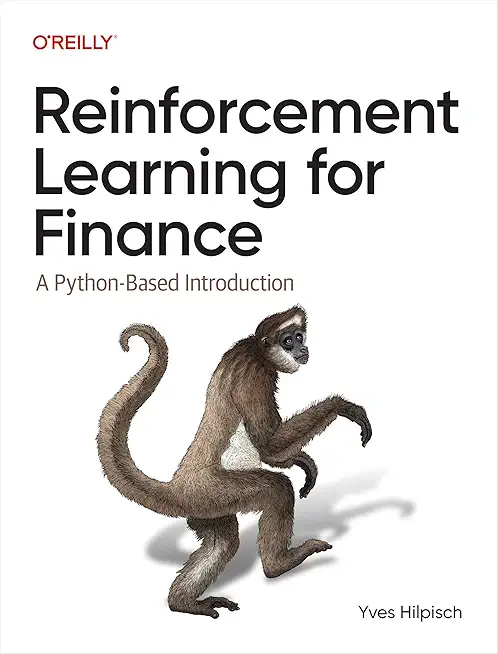Reinforcement Learning for Finance: A Python-Based Introduction

Huge savings for students
Each student receives a 50% discount off of most books in the HSG Book Store. During class, please ask the instructor about purchase details.| List Price: | |
| Price: | |
| You Save: |
This book is among the first to explore the use of reinforcement learning methods in finance.
Author Yves Hilpisch, founder and CEO of The Python Quants, provides the background you need in concise fashion. ML practitioners, financial traders, portfolio managers, strategists, and analysts will focus on the implementation of these algorithms in the form of self-contained Python code and the application to important financial problems.
This book covers:
- Reinforcement learning
- Deep Q-learning
- Python implementations of these algorithms
- How to apply the algorithms to financial problems such as algorithmic trading, dynamic hedging, and dynamic asset allocation
This book is the ideal reference on this topic. You'll read it once, change the examples according to your needs or ideas, and refer to it whenever you work with RL for finance.
Dr. Yves Hilpisch is founder and CEO of The Python Quants, a group that focuses on the use of open source technologies for financial data science, AI, asset management, algorithmic trading, and computational finance.
